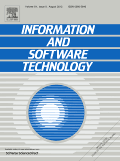
INFORMATION AND SOFTWARE TECHNOLOGY
Scope & Guideline
Driving Breakthroughs in Software Engineering and Information Science
Introduction
Aims and Scopes
- Software Development Methodologies:
The journal publishes research on various software development methodologies, including agile, DevOps, and model-driven development, highlighting their applications, challenges, and effectiveness in different contexts. - Software Quality Assurance and Testing:
Research on techniques and tools for software testing, quality assurance, and defect prediction is a core focus, emphasizing automated testing, test case generation, and methodologies to enhance software reliability. - Security and Vulnerability Management:
The journal explores security issues in software engineering, including vulnerability detection, management of technical debt, and frameworks for assessing software security, reflecting the growing importance of cybersecurity in software development. - Machine Learning and AI in Software Engineering:
There is a significant emphasis on the application of machine learning and artificial intelligence techniques to improve software engineering processes, such as defect prediction, code review automation, and requirements engineering. - User Experience (UX) and Usability:
The journal addresses the integration of user experience and usability principles in software development, focusing on methodologies for evaluating and enhancing user interactions with software systems. - Software Architecture and Design:
Research related to software architecture, design patterns, and system modularization is prevalent, with studies examining the impact of architectural decisions on software quality and maintainability. - Emerging Technologies in Software Engineering:
The journal also covers the implications of emerging technologies such as cloud computing, quantum computing, and IoT on software engineering practices and methodologies.
Trending and Emerging
- DevOps and Continuous Integration/Deployment:
There is a significant increase in research related to DevOps practices and continuous integration/deployment, highlighting the industry's shift towards agile delivery and operational efficiencies. - Automated Software Engineering:
The trend towards automation in software engineering processes, including automated testing, code generation, and maintenance, is gaining traction, with many papers exploring innovative tools and methodologies. - Machine Learning Applications:
A notable rise in the application of machine learning techniques to various aspects of software engineering, from defect prediction to code review automation, demonstrates the integration of AI capabilities in the field. - Security in Software Development:
Research addressing security concerns throughout the software development lifecycle is increasingly prominent, reflecting the urgent need for secure coding practices and vulnerability management. - User-Centric Software Design:
The focus on user experience and usability in software design is emerging as a critical area of research, with studies examining methodologies to enhance user satisfaction and engagement. - Cloud Computing and Software as a Service (SaaS):
As cloud technologies continue to transform software deployment models, research exploring cloud-native applications, microservices, and SaaS architectures is rapidly increasing. - Sustainability in Software Engineering:
Emerging themes around sustainability in software practices, including energy-efficient coding and sustainable software development processes, indicate a growing awareness of environmental impacts.
Declining or Waning
- Traditional Software Development Models:
There is a noticeable decline in research focusing on traditional software development models, such as the Waterfall model, as agile and DevOps methodologies gain popularity and become the focus of new studies. - Legacy System Maintenance:
Research addressing the maintenance and evolution of legacy systems appears to be waning, possibly due to the increasing shift towards modern architectures like microservices and cloud-native applications. - Basic Software Engineering Education:
Studies centered around foundational software engineering education and curriculum development are becoming less frequent, as the field increasingly emphasizes practical skills and industry collaboration. - Static Analysis Tools:
While still relevant, the frequency of research specifically targeting static analysis tools for bug detection and code quality assessment has decreased, possibly overshadowed by more dynamic and automated approaches. - Software Project Management:
Research focusing on traditional software project management practices is less prominent, as the field shifts toward more adaptive and flexible management approaches that align with agile and lean principles.
Similar Journals
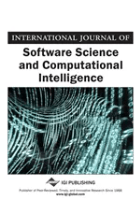
International Journal of Software Science and Computational Intelligence-IJSSCI
Driving Progress in Algorithm Development and Machine LearningInternational Journal of Software Science and Computational Intelligence (IJSSCI) is a prominent academic journal published by IGI Global, dedicated to advancing the fields of software science and computational intelligence. With its ISSN 1942-9045 and E-ISSN 1942-9037, IJSSCI offers a platform for researchers, practitioners, and students to disseminate innovative research findings, theoretical advancements, and practical applications in areas such as algorithm development, machine learning, and software engineering. Although the journal currently does not operate under an open access model, its rigorous peer-review process ensures high-quality publications that contribute significantly to the academic discourse. Based in Hershey, PA, IJSSCI is recognized for its commitment to fostering collaboration among professionals in the technology and computer science fields, making it an essential resource for those looking to stay at the forefront of software science advancements.

International Journal of Web Services Research
Navigating the Future of Information SystemsThe International Journal of Web Services Research, published by IGI Global, is a premier forum dedicated to advancing research and innovation in the field of web services. With an ISSN of 1545-7362 and an E-ISSN of 1546-5004, this journal has steadily contributed to the discourse on computer networks, information systems, and software development since its inception in 2004. Based in the United States, the journal publishes high-quality research articles that delve into cutting-edge web service technologies and methodologies, making it an invaluable resource for researchers, professionals, and students alike. Although categorized in the Q4 quartile in 2023 across several classifications, its growing impact and relevance are reflected in its ongoing engagement with contemporary issues in the web services landscape. As an academic platform, it aims to provide a comprehensive understanding of the dynamics of web services and their implications for future technological advancements. Researchers are encouraged to contribute their findings to foster knowledge sharing and collaboration within this vital domain.
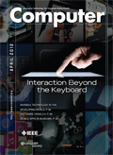
COMPUTER
Uncovering Pioneering Ideas in Technology and Computing.COMPUTER, published by the IEEE COMPUTER SOC, stands as a pivotal resource in the field of computer science, encompassing a broad range of topics and innovations within the industry. With an ISSN of 0018-9162 and E-ISSN 1558-0814, this esteemed journal features high-impact research articles that contribute significantly to the advancement of technology, demonstrating a prestigious Q1 classification in the Computer Science (miscellaneous) category for 2023. Positioned within the top percentile of Scopus rankings (ranked #84 out of 232), COMPUTER serves as an essential platform for sharing pioneering ideas and emerging trends that shape the future of computing. Although it does not currently offer open access, the journal's rigorous peer-review process ensures the publication of high-quality content. Researchers, professionals, and students alike will find invaluable insights into computer science developments from 1970 through 2024, making it a vital tool for anyone dedicated to this ever-evolving field.
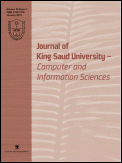
Journal of King Saud University-Computer and Information Sciences
Connecting Ideas, Shaping the Future of TechnologyJournal of King Saud University-Computer and Information Sciences, published by ELSEVIER, is a prestigious open-access journal focusing on the rapidly evolving fields of computer science and information technology. Since its inception in 1996, this journal has provided a platform for high-quality research and innovative ideas, promoting the dissemination of knowledge to a global audience. With a remarkable impact factor and ranked Q1 in the Computer Science (miscellaneous) category as of 2023, it stands among the top 11% of journals in its field, reflecting its commitment to excellence and relevance. The journal proudly carries the ISSN 1319-1578 and E-ISSN 2213-1248, and it is based in Saudi Arabia while being part of a global academic network. With a Scopus rank of #26 out of 232 in general computer science, the Journal of King Saud University-Computer and Information Sciences is an essential resource for researchers, professionals, and students seeking to stay at the forefront of technological advancement. As it continues to thrive through 2024, it invites contributions that will shape the future of computing and information sciences.
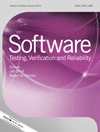
SOFTWARE TESTING VERIFICATION & RELIABILITY
Transforming Risk Management Through Scholarly CollaborationSOFTWARE TESTING VERIFICATION & RELIABILITY, published by Wiley, serves as a premier journal in the fields of software engineering, risk management, and quality assurance. With an ISSN of 0960-0833 and E-ISSN 1099-1689, this journal has been a pivotal resource since its inception in 1991, providing insights into the latest methodologies and technologies related to software testing and verification through to 2024. The journal is recognized for its rigorous peer-review process and boasts an impressive reputation, rated Q2 in Media Technology and Safety, Risk, Reliability and Quality, along with a Q3 rank in Software as of 2023. Its Scopus ranks further solidify its standing within the academic community, placing it in the 62nd and 43rd percentiles for Engineering and Computer Science, respectively. The journal fosters a collaborative environment for researchers, professionals, and students, encouraging the exploration of cutting-edge research, applications, and innovations in software testing and reliability, making it an invaluable asset for those seeking to advance their knowledge and expertise in this essential area.

Frontiers of Computer Science
Pioneering Research for Tomorrow's TechnologyFrontiers of Computer Science is a leading peer-reviewed journal dedicated to advancing the field of computer science through the publication of high-quality research articles, reviews, and theoretical discussions. Published by HIGHER EDUCATION PRESS, this journal has gained significant recognition, currently boasting a prestigious impact factor and ranking in the Q1 quartile for both Computer Science (miscellaneous) and Theoretical Computer Science categories in 2023. With a focus on the intersection of computational theory and practical applications, it serves as a vital platform for researchers, professionals, and students alike who are eager to contribute to and stay updated with groundbreaking developments. The journal’s scope encompasses a wide range of topics, reflecting the diverse nature of computer science today. Operating from Beijing, China, it emphasizes Open Access, ensuring that vital research is readily available to the global academic community. With its convergence period spanning from 2013 to 2024, Frontiers of Computer Science remains committed to fostering innovation and scholarly dialogue that drives the future of technology.
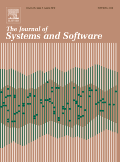
JOURNAL OF SYSTEMS AND SOFTWARE
Shaping the Future of Software Engineering and Information Systems.JOURNAL OF SYSTEMS AND SOFTWARE, published by Elsevier Science Inc, is a premier academic journal that serves as a vital platform for the dissemination of cutting-edge research in the fields of software engineering, information systems, and hardware architecture. With an impressive impact factor and consistently ranking in the Q1 category across several relevant sectors, including hardware and architecture (ranked 33rd out of 177), information systems (ranked 72nd out of 394), and software (ranked 75th out of 407) as of 2023, this journal is recognized for its rigorous peer-review process and high-quality publications. Established in 1979, the journal has become an essential resource for researchers, professionals, and students looking to stay abreast of the latest advancements and emerging trends in systems and software. While the journal does not currently operate under an open-access model, it ensures wide visibility through its indexed publications and is dedicated to advancing scholarly discourse in computer science. With contributions from leading experts in the field, JOURNAL OF SYSTEMS AND SOFTWARE continues to shape the landscape of software and systems research.

ACM TRANSACTIONS ON SOFTWARE ENGINEERING AND METHODOLOGY
Elevating Practices in Software Engineering and MethodologyACM Transactions on Software Engineering and Methodology, published by the Association for Computing Machinery, is a leading journal in the field of software engineering, featuring cutting-edge research and methodologies that influence practices and advancements in the discipline. Established in 1992, this journal boasts an impressive Q1 ranking in Software for the year 2023, signaling its high impact and relevance within the academic community. With its strong Scopus rank (#126/407) and a solid 69th percentile, it serves as a critical platform for scholars, practitioners, and students alike, promoting the dissemination of innovative ideas and solutions that drive the software industry forward. Although it operates without an open access option, it consistently publishes peer-reviewed articles, technological advancements, and case studies that shape the future of software engineering. The journal's commitment to quality and excellence makes it an essential read for anyone keen on understanding the complexities and methodologies transforming the field.

Automated Software Engineering
Exploring New Frontiers in Software EngineeringAutomated Software Engineering is a premier journal dedicated to advancing the field of software engineering through the exploration of innovative methodologies, tools, and applications. Published by Springer since its inception in 1994, this journal has established itself as a vital resource for researchers, industry professionals, and students alike, providing insights into the latest trends and technological advancements. With an impressive impact factor and currently ranked in the Q2 quartile of the Software category, it is recognized for its contribution to the discipline. The journal covers a broad scope of topics including automation in software development, empirical studies, and theoretical advancements, fostering discussions that bridge academia and industry. As we look forward to converging towards the year 2024, the journal continues to invite high-quality submissions that challenge existing paradigms and pave the way for future innovations in software engineering.

Jordanian Journal of Computers and Information Technology
Exploring Frontiers of Knowledge in Computer ScienceJordanian Journal of Computers and Information Technology, published by Princess Sumaya University and SRSF, stands as a significant platform for scholarly research in the realm of computer science, particularly in topics related to emerging technologies and information systems. With its Open Access model initiated in 2015, the journal facilitates global access to high-quality research findings, embodying the principles of knowledge sharing and academic collaboration. The journal's ranking in the Q3 category of Computer Science (miscellaneous) and its placement in the 54th percentile of Scopus' General Computer Science rankings underscore its growing reputation among researchers and professionals alike. Situated in Amman, Jordan, the journal actively contributes to the regional and international discourse on computing methodologies, applications, and innovations, making it an indispensable resource for scholars seeking to advance their understanding and engage with contemporary issues in technology.